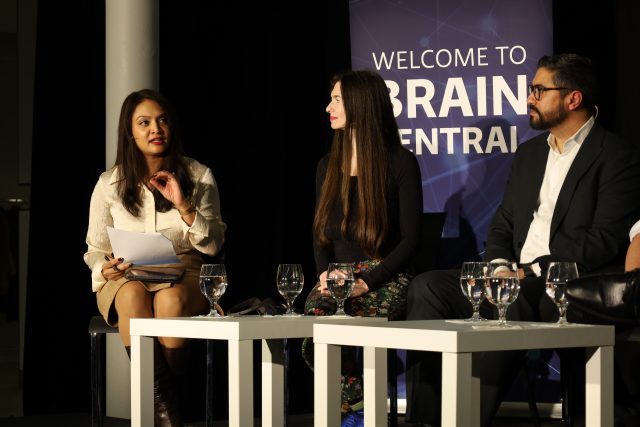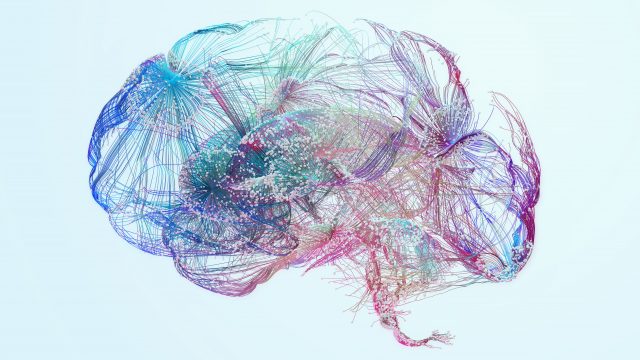Understanding who you are, deciding how you behave, experiencing love and laughter — the brain is key to these behaviours. Perhaps the most important brain region underlying these functions is the frontal lobes, the area of the brain most closely tied to these highest functions.
Thinking before you speak? Your frontal lobes self-regulate emotional responses. Suddenly feel the urge to get up and dance to music? Your frontal lobes are the source of that energization. Asking yourself if you really need to eat that second piece of cake? That thinking, or metacognition, takes place in the frontal lobes. There is also an important fourth function: the executive function which involves task setting and monitoring, and helps ensure our success as individuals.
Why am I writing about my own research in an OBI newsletter? Having spent 35 years of my career researching and explaining the frontal lobes, I often find it helpful to assess OBI’s work through the lens of frontal lobe executive function. So, from the perspective of the OBI Chief ‘Executive’, here’s how I see it.
We are halfway through year two of our second (five year) mandate and entering a period of reflection and planning. We can begin to monitor the success of previous initiatives and assess the output of the system we have put in place.
The innovation system at the core of our research programs has now been in place for three and a half years. These collaborations connect the strengths of researchers, clinicians, industry, and patient advocacy groups to focus their collective efforts on the shared goal of improving the lives of individuals with brain disorders.
One example we are particularly proud of is the completion of 12 projects which forged connections between industry and academia through our partnership with the Federal Development Agency for Southern Ontario. Read more about the new neuro-technologies which have been developed, and how they are poised to make a positive impact on patient lives.
Another example is the progress of our Integrated Discovery programs. The outputs from these research programs can be measured in many ways including research publications, researcher awards, fundraising initiatives, and events. A few successes from each of the five Integrated Discovery programs are highlighted here.
A third example is linking research with patients by creating a community among the individuals and families participating in Integrated Discovery programs. The Province of Ontario Neurodevelopmental Disorder Network (POND) recently hosted a family day to connect researchers with participants; you can learn more about it here.
I look back with pride on these outputs from the early years of our system and admire the collaborative spirit which drives these outcomes. But there is much more to do, and we remain focused on the new opportunities ahead of us as we begin to set tasks for the next three years.
One area about which we are very excited is the upcoming partnership with the Ontario Science Centre. This is a new and important initiative for us and provides an opportunity to reach a broad, diverse audience to raise awareness about the importance of brain disorders and highlight the excellent work of our partners to improve the lives of individuals living with brain disorders. Read more about what we are planning here.
We have also just finished hosting an international workshop focused on using big data, in particular “deep” (research) and “broad” (health administrative and other data), to advance the diagnosis, treatment and care of individuals with dementia. This workshop lays the groundwork for Ontario to play a significant role in the global movement to combat dementia. Read more about why Ontario is uniquely positioned to make an impact, and the role OBI will play in this initiative.
From where I stand, it looks like we are on the right track. While tasks have been set and completed, we will continue to monitor our outputs to ensure we are performing at the level of excellence we set for ourselves. By continuing on this path together with our partners, we hope to collectively realize benefits to individuals living with brain disorders and Ontario’s economy.
Back to Brainnovations Newsletter
